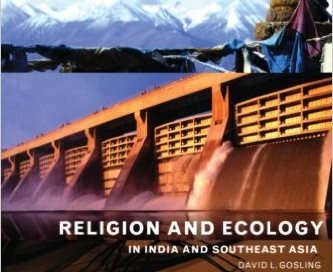Religion and Ecology in India and Southeast Asia
The resolution of the ecological problems facing the Indian sub-continent—with its huge Himalayan land mass and large population—and southeast Asia will be a major factor in whether life as we know it will survive beyond the early centuries of the new millennium.
Religion and Ecology in India and Southeast Asia looks at the part the Hindu and Buddhist traditions could play in promoting more just and sustainable relationships between people and the natural world. The ecological potential of these traditions is considered from both a historical perspective, and in relation to their contemporary expressions. From this standpoint, transformations between the past and the present are shown to offer the most fertile possibilities for improvement. Thus India’s sacred groves, the conservation of medicinal herbs by Thai monks compensating for biodiversity loss, Hindu scientists acknowledging Vedanta in exploring the possibility of pain in plants, and Thai lay nuns redefining their roles in line with tradition and modernity, illustrate ways in which the Hindu and Buddhist traditions can improve ecological relationships. David Gosling’s arguments are based on his extensive fieldwork in the region and are framed by the socio-political context of religious change in India and southeast Asia, where it is maintained that the development-led analysis of Amartya Sen, with its emphasis on participative education, healthcare and a reduction of the gender imbalance, is a crucial prerequisite for social and environmental improvement. Though regional in scope, this is a study of global significance, considering the most urgent social and environmental problems of the new millennium.
David L.Gosling trained as a nuclear physicist and more recently was the first Spalding Fellow in Religions at Clare Hall, University of Cambridge, where he is currently based. He was Director of Church and Society at the World Council of Churches in Geneva and has published extensively on environmental issues in south Asia.

